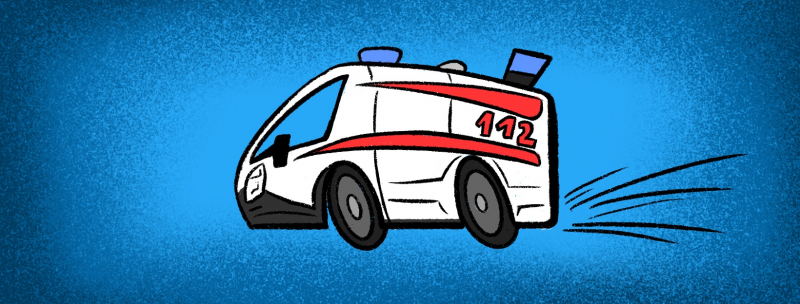- What is mental health?
- What can happen to my mental health? How do I know when I should ask for help?
- What do you do if you notice such symptoms?
- How do you determine which specialist you need?
- What if I visit a doctor and everyone will find out about it? What if I will be hospitalized?
- Are there any preventive measures?
What is mental health?

Mental health, also called psychological health, is about mental wellbeing in general. If a person is mentally healthy, they are able to enjoy living, realize their purpose in life, face professional and personal challenges, love, work, and build relationships. If you aren’t able to do that, it means that psychologically you aren’t healthy. It doesn’t necessarily mean that you’re mentally ill and have serious diseases such as schizophrenia or paranoia.
What can happen to my mental health? How do I know when I should ask for help?

Your mental health can suffer due to various reasons, such as long-term stress, family issues, loss, or even a brain injury. This can manifest in different ways, from low self-esteem and constant bad mood to neurosis and mental illness.
It’s important to remember that not all negative emotions and feelings we experience are symptomatic. Fear, anger, and sadness are something that every person feels sometimes. However, if these states of mind disrupt your life, it might be a symptom of a psychological issue. For example, if you have been feeling sad for more than two weeks for no apparent reason, if you panic when you’re using the subway so much that you always choose other means of transport, or if you haven’t slept in days.
What do you do if you notice such symptoms?

If you have noticed problems of that kind, you should consult a specialist. Depending on your problem, it can be a psychologist, a psychotherapist, or a psychiatrist.
How do you determine which specialist you need?

It’s better to turn to a psychologist if you are facing psychological problems without experiencing physical symptoms. For example, if you are confused by your thoughts and feelings, if you can’t find a purpose in life, or if you are going through loss, academic or workplace problems, and fail to successfully communicate with your close ones.
You should visit a psychotherapist if a long-term traumatic experience led you to psychosomatic symptoms, such as sleeping disorders, loss of appetite, irregular heartbeat, headaches, high blood pressure, and skin diseases. These symptoms mean that you don’t have enough resources to fight this on your own and you might need to take meds that can only be prescribed by a doctor.
A psychiatrist’s consultation is required for those who have symptoms like fear of going out, panic attacks, anger issues, hallucinations, and delusional or suicidal thoughts. Especially if there were episodes of self-harm, physical aggression, and addiction to alcohol or drugs.
What if I visit a doctor and everyone will find out about it? What if I will be hospitalized?

Psychological, psychotherapeutic, and psychiatric consultations are always confidential but not anonymous. Even the very fact of an appointment is protected by medical privacy, not to mention the diagnosis. This information won’t be shared with your colleagues, university, or family. A doctor has the right to share it only if there’s an official order from the court. Hospitalization is only possible when actions of a person endanger their life, health, or safety of others.
Are there any preventive measures?

Yes, there is so-called mental hygiene. It includes a large list of measures that will possibly help you avoid visiting a specialist. You should be mindful of your life and events that make an impact on you. You should find stress prevention methods that work for you specifically. It can be a hobby, going outside, visiting the theater, going to sports events – whatever suits you. Following a daily routine is helpful too. Plus, as obvious as it may sound, you should avoid brain injuries. However, if you are already experiencing psychological struggles, don’t hesitate to contact a professional, as it can potentially only get worse if untreated.






